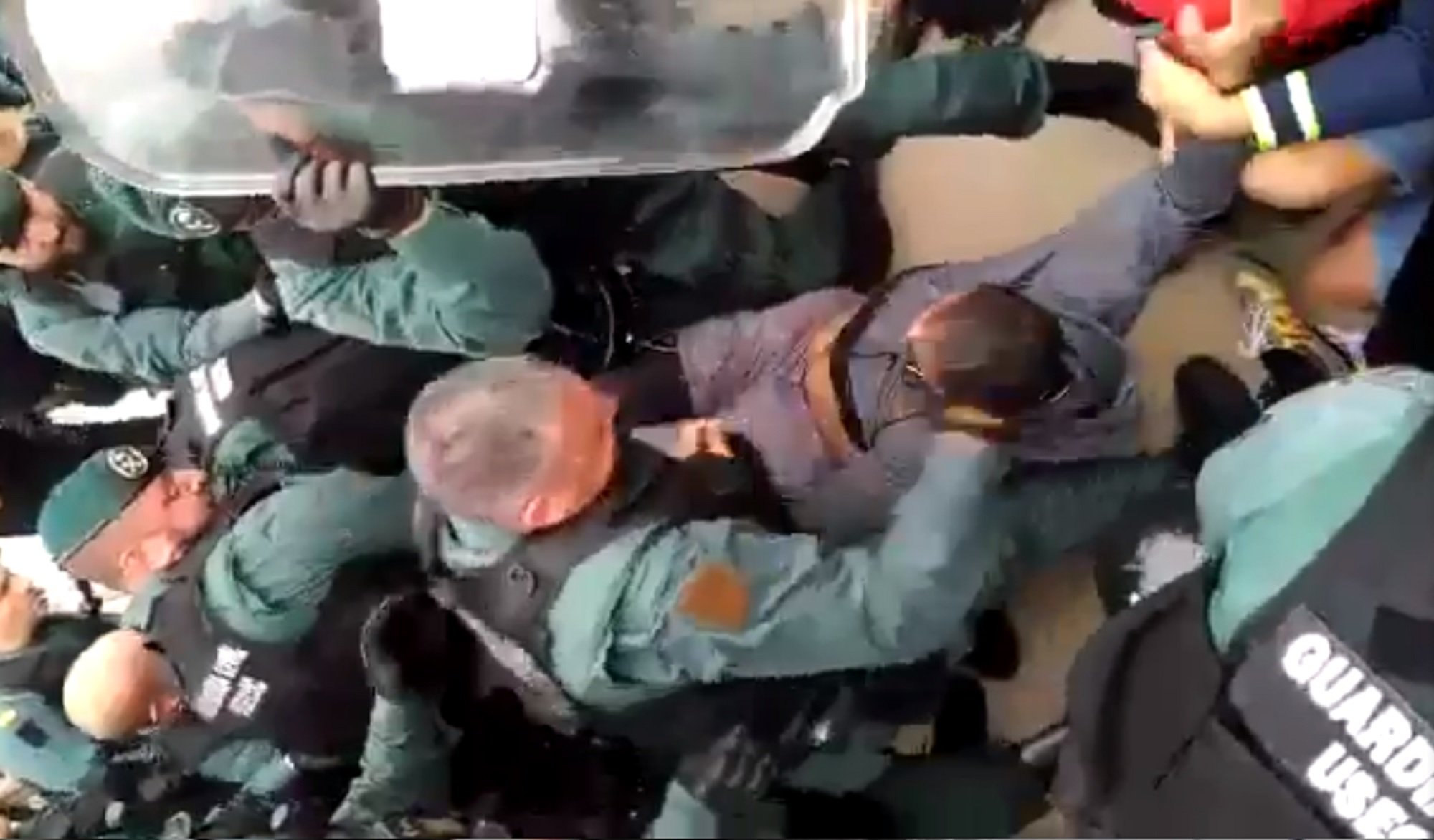The European Court of Human Rights has dismissed the first two appeals on the use of excessive force by Spanish police during the Catalan independence referendum of October 1st, 2017. After exhausting the judicial appeal route within Spain, two Catalan from Bages county took the Spanish authorities to the Strasbourg court in August 2020 on the grounds that they had their right to a fair trial breached due to "scant" investigation by the Spanish judicial authorities of the police use of force. The complainants also asserted that other fundamental rights such as the rights to assembly and free speech and not to be subjected to inhuman or degrading treatment had been violated. As the ACN agency has learned, on May 25th, 2021, the ECHR declared these two appeals inadmissible because the complaints are "unfounded" and it sees no evidence of violations of fundamental rights.
The two complainants are the first of hundreds of people injured on the day of the Catalan independence vote who have taken the issue to Europe.
A chamber composed of one single judge studied the case, but "in view of the evidence provided, there does not appear to have been a violation of the rights and freedoms" of the European Convention on Human Rights, according to the court's notification. The decision is final and cannot be appealed, although this does not prevent others affected by the 1st October police actions from appealing to Strasbourg when their judicial proceedings in Spain reach an end.
In the case in question, two of the 16 people injured by the police actions to disrupt the referendum took their complaints to Europe. At the Sant Miquel school being used as a voting centre in Castellgalí, a town of about 2,000 people near Manresa, a large force of Spanish Civil Guards was deployed to evacuate the polling station. At the polling station, where approximately 1,000 people voted, the Civil Guard used force to open a way through residents, cut down the courtyard fence and forcibly enter the grounds.
This is Spanish democracy #Castellgali #catalanReferendum #saveDemocracy pic.twitter.com/M8oqd6PGPa
— Joan M. (@joanmroig) October 1, 2017
Police also forcibly entered the polling station where the ballot boxes and computers with the electoral rolls were located.
#castellgalí #escolasantmiquel #CatalanReferandum #referendumCAT pic.twitter.com/zowrEteOYD
— Judith Subirats (@judithsubi) October 1, 2017
According to one of the lawyers who took the case to Europe, their client was removed from the door of the polling station with "punches" and "kicks", but at the same time the Civil Guard entered elsewhere, opening a barrier. The lawyer says that therefore "the police action was not necessary because they didn't have enough [officers] and therefore it was a disproportionate action, they went to hurt people." The complainant's other lawyer, David Casellas, said: "My client was not even asked to testify. Both the Spanish prosecutor's and the defence asked to extend the proceedings, but the judge refused."
A fair trial
The complainants appealed against the decision of a court in Manresa to throw out their case and first went to the court of Barcelona, which also rejected their claim. They then took the case to the Spanish Constitutional Court, which dismissed the appeal for constitutional protection. With the judicial process in Spain then ended, the voters' lawyers filed an appeal against the Spanish state in Strasbourg. They alleged a violation of the right to a fair trial in the face of "scant" investigation by the Spanish courts.
Casellas says the Spanish judiciary was "strongly guided by the low severity of the injuries", whereas the lawyer believes the importance lies in the "degrading" and "unnecessary" action of the Civil Guard to "repress a peaceful protest". He argues that several fundamental rights were violated such as the right to assembly, to free speech and not to be subjected to degrading treatment.

